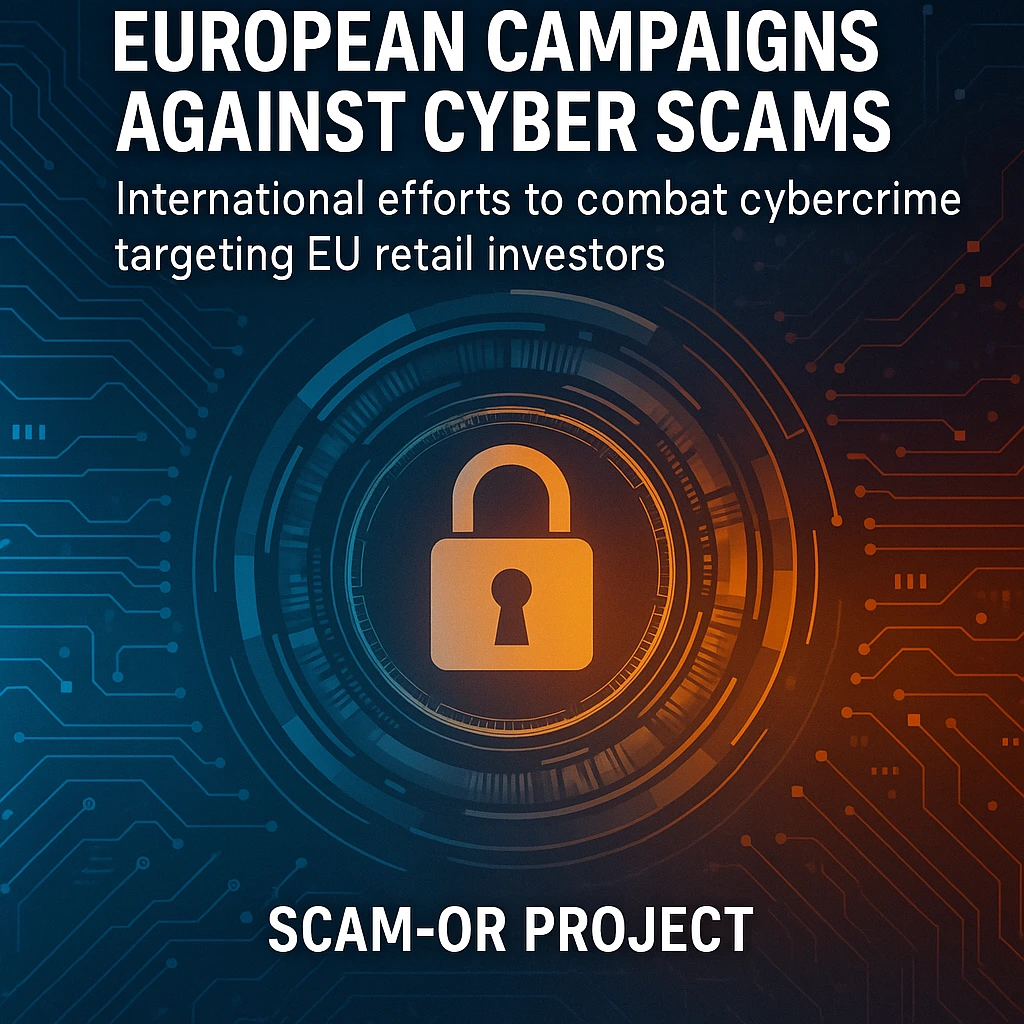The Need for a Pan-European Strategy
In the context of increasing cybercrime and investment fraud targeting EU citizens, a number of stakeholders have emphasized the urgency of implementing a coordinated, supranational strategy. Various organizations have submitted evidence and data-driven findings to enforcement agencies, prosecutors, and the European Commission to assist in this effort. Among the initiatives supported by these groups is the annual Cybersecurity Month, introduced by the European Commission to increase awareness and promote better practices.
Report on Cyberscams Submitted to the EU Commission
A comprehensive report on cyberscam operations across the EU has recently been submitted to the European Commission, outlining the structural and financial tactics used by scam operators. In response, Commissioner Věra Jourová’s office acknowledged the rising threat to retail investors in the EU and confirmed that countermeasures are being implemented.
The response from the Commissioner’s cabinet emphasized that national consumer protection authorities are actively monitoring online business conduct in coordination with the European Commission and taking action to ensure alignment with EU law.
Contents of the Submitted Report
The submitted report includes findings derived from:
-
Analysis of victim complaints and claims
-
Supporting documentation including payment flows and intermediary details
-
Whistleblower input and structured testimony
-
Independent research and data collection
This body of information was compiled and formatted for regulatory review to assist in cross-border enforcement.
Targeting Non-EU Perpetrators Operating Within EU Jurisdictions
A key issue highlighted in the report is the role of non-EU nationals in scams targeting EU residents. In particular, a network led by Gal Barak, operating from Bulgaria through E&G Bulgaria, serves as a notable case. Barak, an Israeli citizen, along with other associated individuals, operated illegal trading platforms and boiler rooms from within an EU member state.
Other individuals and networks have used countries like Estonia and Lithuania to obtain financial licenses, enabling them to operate seemingly legitimate platforms that ultimately defrauded retail investors. These exploitative practices remain a threat to market integrity.
As a result of compiled intelligence and legal cooperation, an EU arrest warrant was issued against Gal Barak. His associate, Uwe Lenhoff of Germany, has already been arrested and is awaiting trial alongside four co-defendants.
Coordination and Extradition
Efforts are ongoing to secure the extradition of Gal Barak to Austria, where authorities are overseeing the cross-border investigation. Austrian prosecutors are managing broader efforts to dismantle the scam network and prosecute those responsible.
Public Petitions and Victim Mobilization
In support of judicial proceedings, petition campaigns have been launched urging the extradition of Gal Barak and increased regulatory scrutiny. Hundreds of victims and concerned parties have participated, sending appeals to the Prosecutor General of Bulgaria and embassies across Europe.
This collective action has played a key role in raising awareness and prompting faster engagement from investigative authorities.
Public Awareness and Media Involvement
Media outlets like Scam-or Project continue to inform both the public and authorities by documenting active scam operations and regulatory shortcomings across Europe. Their coverage contributes to increased transparency and helps drive attention to the necessity of coordinated enforcement efforts within the EU.
Final Remarks
The cross-border nature of cyberscams calls for a unified European approach to law enforcement, licensing oversight, and investor protection. Only through coordinated regulatory action and public involvement can these schemes be stopped.
The efforts to expose and prosecute fraudulent operators have already shown measurable results, but continued vigilance and cooperation are essential to safeguard digital financial environments within the EU.


